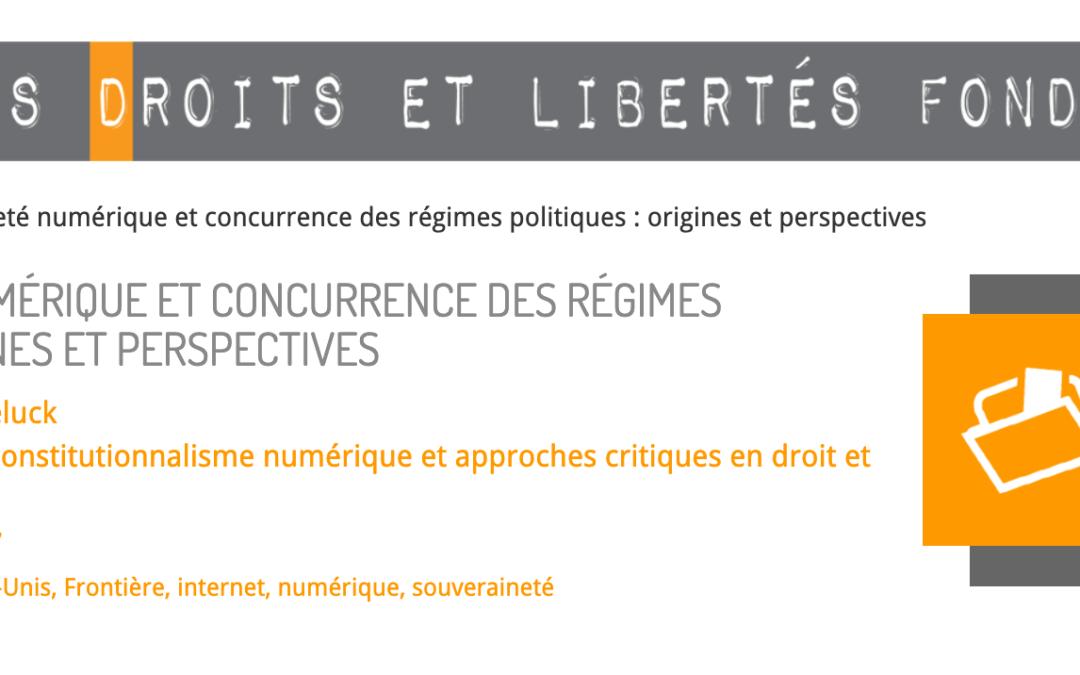Publication as part of the special issue « Constitutionnalisme numérique et approches critiques en droit et technologie » in the Revue des droits et libertés fondamentaux, edited by Manon Altwegg-Boussac and Afroditi Marketou.
Benjamin Loveluck, « Souveraineté numérique et concurrence des régimes politiques : origines et perspectives », RDLF 2025 chron. n°47
This contribution offers an insight into the emergence of the notion of digital sovereignty, which has imposed itself in public debates on digital governance despite a certain conceptual vagueness. Indeed, digital sovereignty encompasses several dimensions, ranging from the control of data and infrastructures, to the regulation of digital markets and online content, and the protection of citizens and consumers—objectives that may also prove contradictory. Initially emerging within the relatively narrow circles of debates on internet governance and as a claim put forward by countries contesting liberal globalization (in particular China and Russia), digital sovereignty is now invoked by a variety of political actors, in a context of strengthening national borders and growing protectionism, echoing the geopolitical struggles that run through the international arena.
Yet the notion of sovereignty is far from self-evident in the context of the internet—quite the opposite. Indeed, it refers to the exercise of legitimate authority over a given territory, whereas for a long time the network was presented as intrinsically deterritorialized—a global space of communication and “free flow of information,” poorly aligned with national jurisdictions. In its simplest expression, digital sovereignty refers to the ability to interrupt information flows, or at least to modulate them. While this prerogative theoretically belongs to states (regardless of their legitimacy), in practice it is exercised through technical and service intermediaries (operators, access providers, platforms, etc.) through which these flows transit, and which themselves have a transnational reach. Various authorities, both de jure and de facto, have thus asserted themselves, and sometimes competed with one another, in the course of the controversies and conflicts that have marked the recent history of the digital realm—leading at times to compromises but also to persistent tensions.

